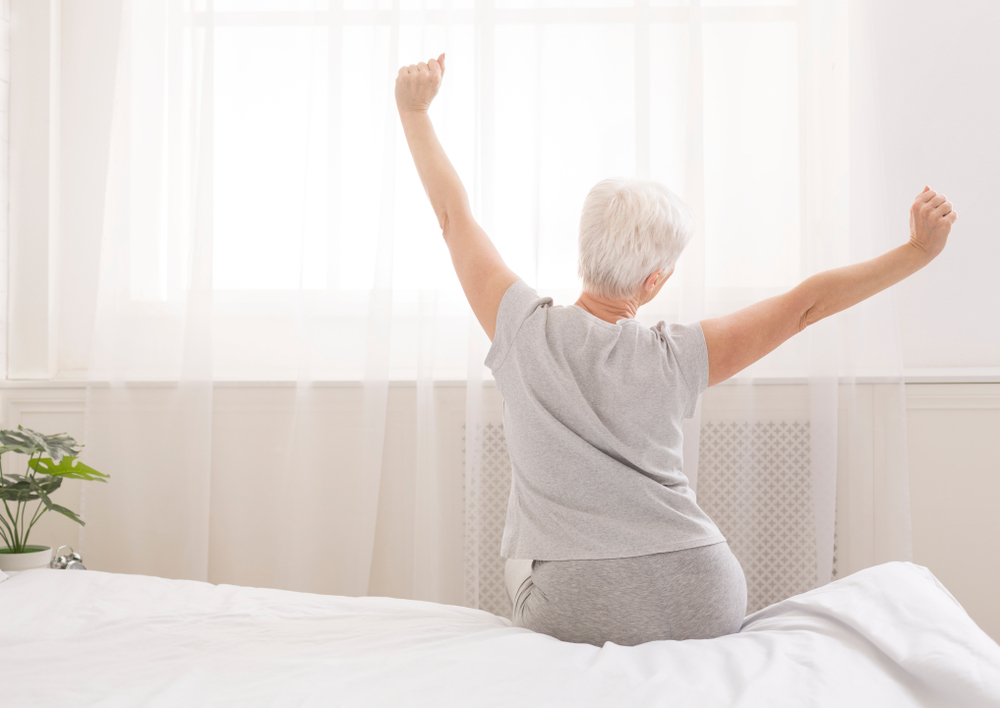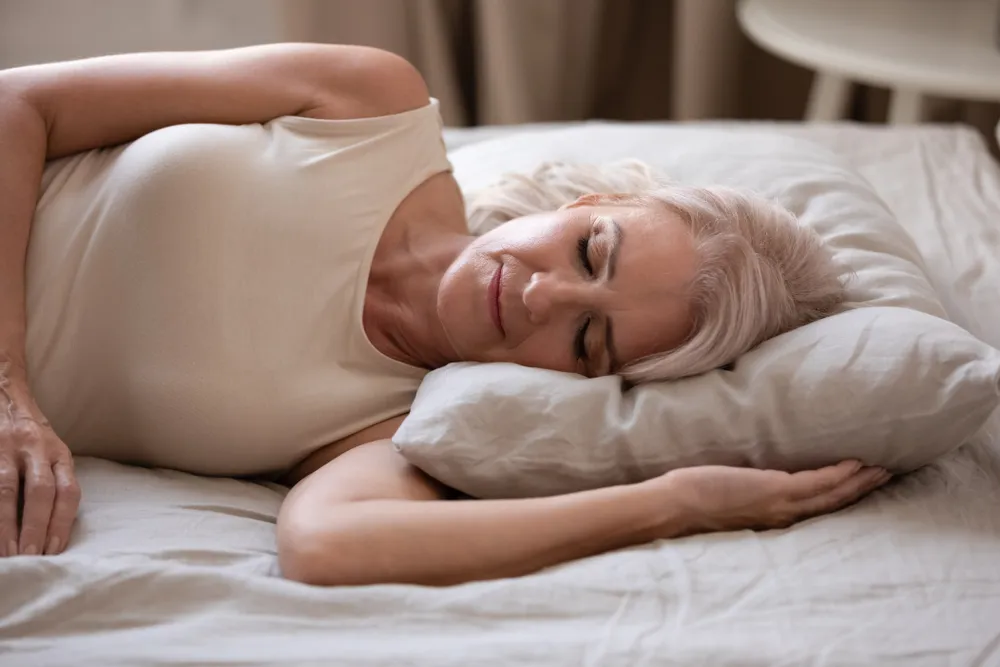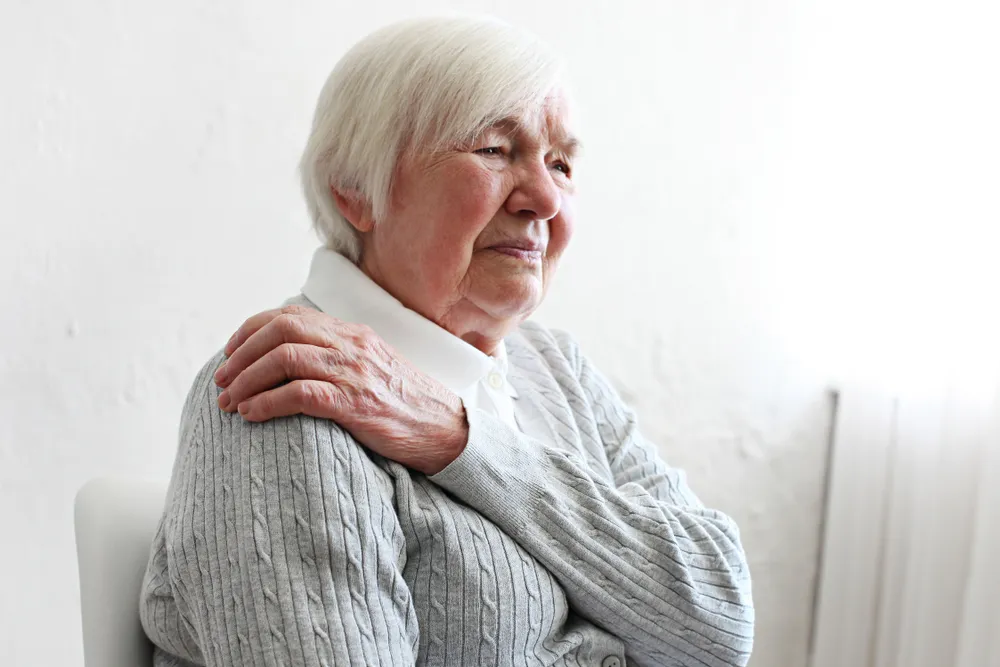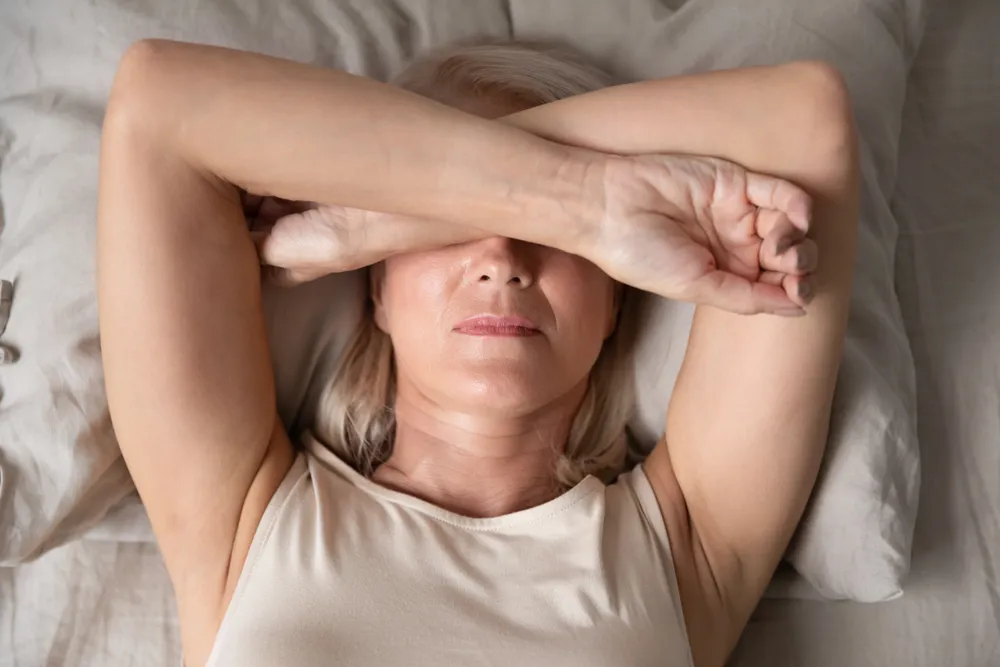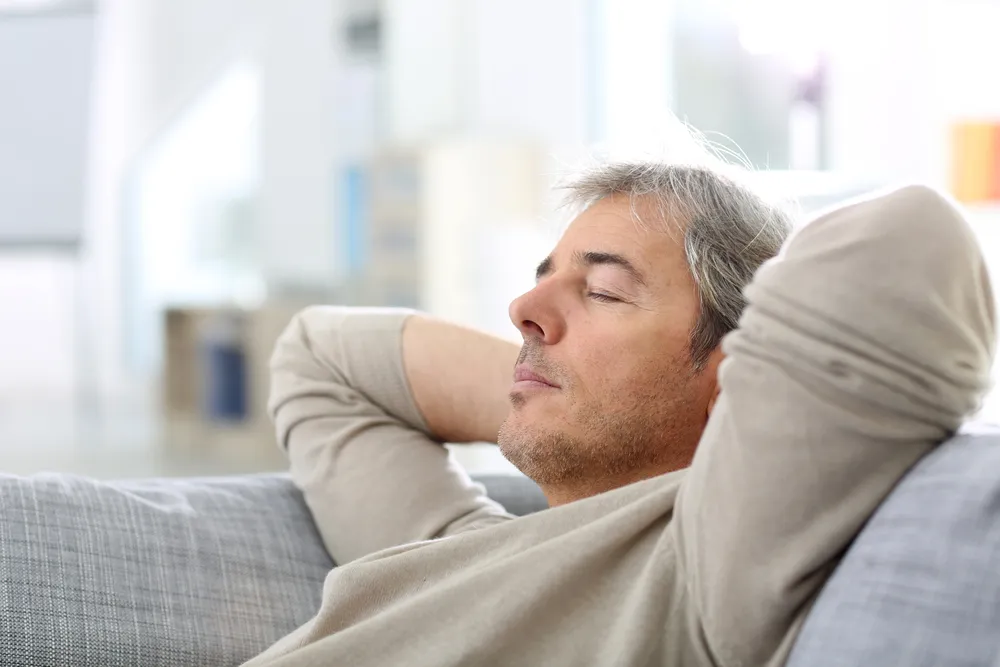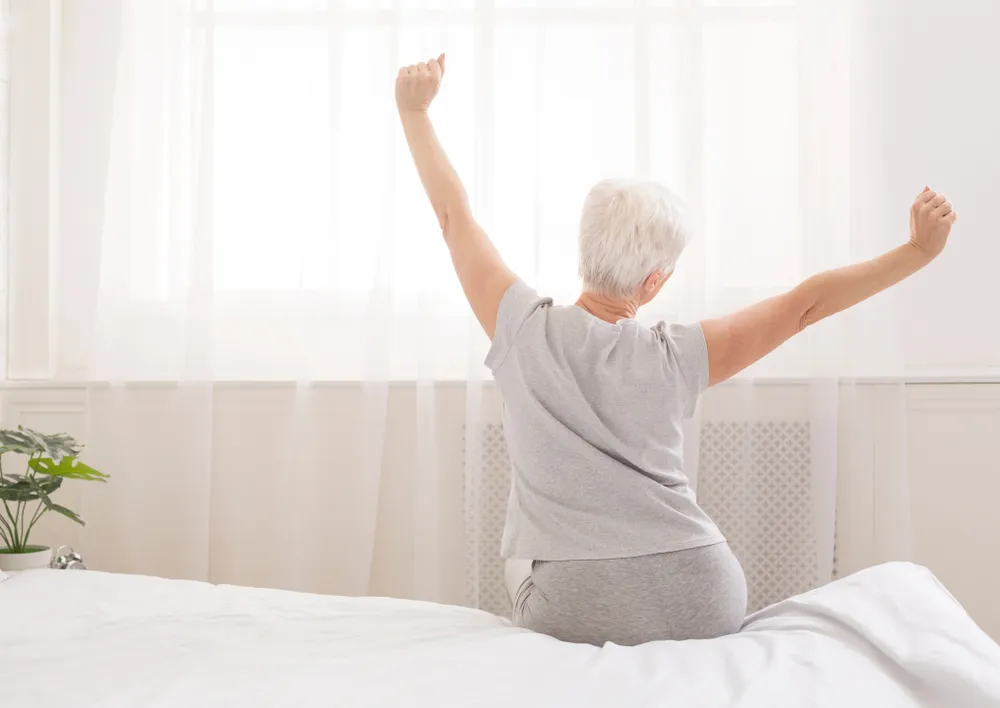It’s common for our sleep patterns to change as we age, but sleep is fundamental to living a healthy, happy lifestyle. Often these sleep issues have a reason behind them and could be anything from physical health conditions to medications to lifestyle changes.
It’s recommended that all adults should get anywhere from 7 to 9-hours of sleep per night. If you’re struggling to keep a consistent sleep schedule and not hitting this recommended amount, follow along as we break down everything you need to know about aging and sleep as well as a few tips to achieve a good night’s rest.
Aging And Sleep
Sleep is fundamental to a happy, healthy lifestyle. It’s common for sleep patterns to change as we age, especially when it comes to the quality and duration of sleep. According to the Sleep Foundation, aging and sleep patterns have a direct correlation due to the effects of an aging suprachiasmatic nucleus (SCN). The SCN acts as an internal clock and its function deteriorates over time which can disrupt circadian rhythms, which has a direct effect on when people feel tired or alert.
Aside from an aging SCN, there are other factors that play a role in sleep changes as we age. Factors such as physical health conditions, exercise regimes, lifestyle changes, and much more can have an effect on our sleep. To learn more about these factors, especially ones that are in your control, follow along as we dive into common sleep issues that seniors face.
Physical Health Conditions
Health can play a large role in how we sleep, especially for those who struggle with chronic health conditions that cause discomfort and pain. A few examples of physical health conditions that may affect sleep include heart disease, diabetes, or arthritis.
According to the National Sleep Foundation Sleep in America Poll, 24-percent of people between 65 and 84 years old reported being diagnosed with four or more health conditions. Those with multiple health conditions also reported six-hours or less of sleep, poor sleep quality, and/or symptoms of a sleep disorder.
Mental Disorders
Aside from physical health conditions, mental disorders can also affect the quality and duration of sleep as we age. Common conditions that affect sleep in older people include depression and anxiety.
These disorders tend to have a bidirectional relationship with sleep meaning that poor sleep can lead to depression and that having depression can also lead to sleep issues. Anxiety and depression tend to go hand-in-hand with sleep disorders such as insomnia, hypersomnia, and obstructive sleep apnea.
Hormonal Changes
Changes in the production of hormones, such as cortisol and melatonin, may also affect sleep in older adults. As we age, the body begins to secrete less melatonin, which is a hormone that responds to darkness and helps promote sleep by coordinating circadian rhythms.
Another big hormonal change that can affect sleep is during and after menopause. Many women experience hot flashes and night sweats that can interrupt sleep. These problems may persist even post-menopause.
Medications
Older adults may find that certain medications affect their duration and quality of sleep. Older adults tend to take more medications than younger people and often certain combinations of medications, as well as their side effects, can affect sleep.
For example, according to HelpGuide, “antihistamines and opiates may cause daytime drowsiness, while medications such as antidepressants and corticosteroids may keep older people awake and contribute to the symptoms of insomnia.”
Lifestyle Changes
Aging also comes with lifestyle changes that may unknowingly be affecting the quality and duration of sleep. Many older adults may be retired, which could lead to napping throughout the day and a less structured sleep schedule.
These major lifestyle changes could also lead to mental disorders such as depression and/or anxiety, which could also eventually lead to sleep problems. A good way to combat these issues is to be aware of them and implement healthy habits to combat them.
Frequent Urination
Frequent nighttime urination, also called nocturia, is a common issue that increases with age as a result of physical changes in the urinary system. This issue actually affects up to 80-percent of older adults and can significantly affect the quality of sleep due to frequent sleep disruptions throughout the night.
Frequent urination can be improved by limiting fluid intake in the evening, especially before bed, and avoiding alcohol and caffeine. Consult your doctor if this is a recurring issue that’s significantly disrupting your quality of life.
Sleep Environment
Sleep environment is another huge factor to take into consideration when it comes to sleep and aging. Be sure that your bedroom is quiet, dark, and set to a comfortable temperature to ensure an optimal environment to promote sleep.
Try to incorporate routines that promote sleep such as reading, meditating, or bathing before bed to signify to your body that it is time to sleep. It’s important to try to avoid activities that could deter your sleep environment such as irregular sleep hours, consumption of alcohol, or watching stimulating TV before bed.
Daytime Napping
As we age, it’s common for many older adults to begin to nap during the day, especially once retired. According to the Sleep Foundation, research suggests that about 25-percent of older adults take naps in comparison to 8-percent of younger adults.
While napping is a perfectly acceptable habit to have, it’s important to understand that this may affect the way you sleep at night. Experts suggest that shorter power naps can help boost energy throughout the day, but many agree that extended napping or napping later in the day can make it more difficult to fall asleep at night.
Insomnia And Other Sleep Disorders
Insomnia and other sleep disorders are major causes of sleep disruption in older adults. Insomnia can be defined as a persistent difficulty in falling or staying asleep.
Restless Legs Syndrome (RLS) is another sleep disorder that may affect older adults which can disrupt sleep by causing an urge to move the legs while resting or sleeping. Sleep-disordered breathing, such as snoring and sleep apnea, can also significantly impact sleep and overall quality of life.
Lack Of Exercise
A sedentary lifestyle can contribute to diminished sleep quality. Regular aerobic exercise throughout the day can promote good sleep at night by increasing the body’s time in deep sleep and reducing daytime sleepiness.
The U.S. Department of Health and Human Services recommends that older adults should engage in at least 30 minutes of physical activity five days per week. This will help older adults to fall asleep faster, sleep longer, and promote an overall better quality of sleep.
Tips For Getting A Good Sleep
If you’re still unsure of what you can do to improve the quality and duration of your sleep as an older adult, follow along for a few quick tips you can implement:
- Incorporate regular exercise into your lifestyle
- Avoid substances that affect sleep such as caffeine, alcohol, and tobacco, especially later in the day
- Develop a bedtime ritual to promote sleep that includes relaxing activities such as reading, meditating, or taking a bath
- Reduce bedtime distractions such as stimulating television shows, loud noises, or bright lights
- Implement a regular sleep schedule
- Talk to your doctor about any physical or mental conditions and medications that may be affecting sleep
